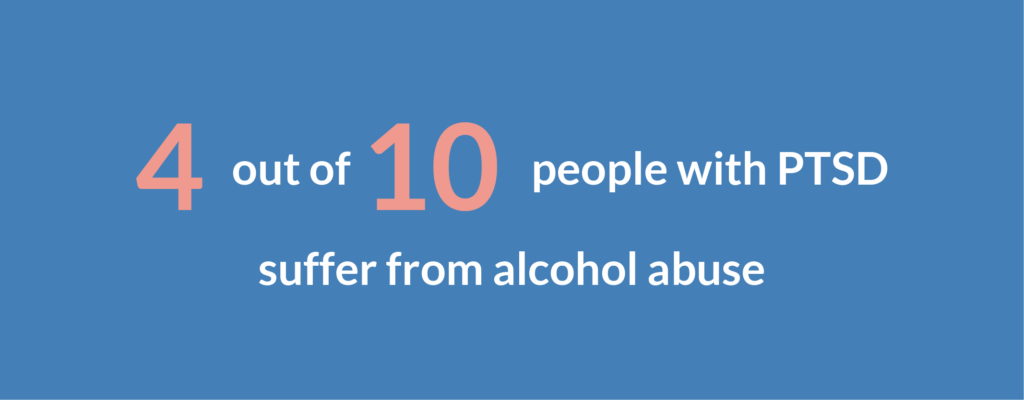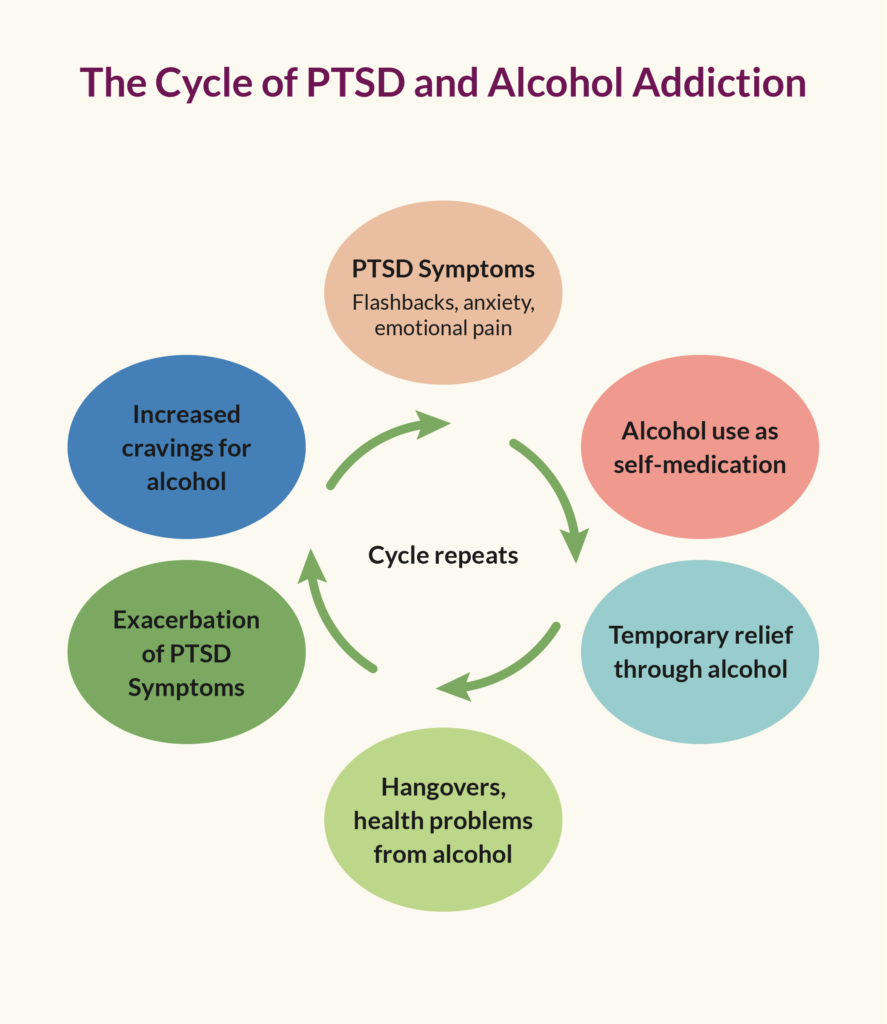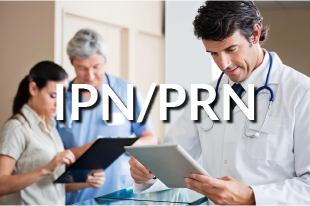How Does Drinking Affect PTSD?
Individuals suffering from PTSD, or any other mental health disorder, may be more tempted to use alcohol consumption as a coping mechanism. While alcohol can temporarily relieve PTSD symptoms, it’s no solution.
Alcohol alters the way the brain and central nervous system work. This prevents proper responses to symptoms of PTSD, such as anxiety, irritability, and distress. But, this relief is temporary and not a proper cure or treatment. Mental health treatment for PTSD is essential to treating the symptoms of trauma in a safe and healthy way.
How Many People with PTSD Are Addicted to Alcohol?

According to the U.S. Department of Veterans Affairs, about 4 in 10 adults suffering from PTSD also suffer from drug or alcohol abuse. The same research showed that most people who suffer from alcohol abuse with co-occurring PTSD developed the PTSD first. This goes along with research warning that PTSD sufferers are at risk of turning to alcohol as a coping mechanism for their symptoms.
In some cases, PTSD develops as a result of heavy drinking. The heavy drinking is then used to cope with the new trauma. One risk of using alcohol as a coping mechanism is the risk of leading to another traumatic event as a direct result of drinking. For example, getting into a drunk driving accident or harming a relationship with a loved one because of heavy drinking. In these cases, individuals may continue to use alcohol to cope with the new trauma, as they did with the old. But, in most cases, alcohol is used to self-medicate for pre-existing PTSD.
Understanding PTSD

To understand the relationship between PTSD and alcohol addiction, it’s important to recognize how PTSD develops after a traumatic event. PTSD consists of three main symptoms:
- Reexperiencing symptoms of a traumatic event or recollection of trauma through exposure to certain triggers
- Avoidance symptoms, or the avoidance of participation in activities or avoidance of thoughts, memories, people, etc. relating to the trauma
- Arousal symptoms, or trouble sleeping, concentrating, irritability, hypervigilance, etc.
Recognizing these symptoms of PTSD helps both individuals suffering and loved ones determine when it’s time to seek help. Heavy and frequent patterns of drinking coupled with these symptoms may indicate a serious issue that requires treatment from either an inpatient or outpatient treatment program.
PTSD and Alcohol Abuse in Veterans
Veterans are at more risk of falling into unhealthy coping mechanisms than the general public. This has a lot to do with the situations they are exposed to while being active personnel for the military.
Roughly 42.2% of U.S. veterans, compared to 14.8% of non-veterans, suffer from Alcohol Use Disorder (AUD), according to a study from the U.S. Department of Veterans Affairs. In addition, 7 out of every 100 veterans suffer from PTSD in their lifetime. The traumatic nature of experiences in the military, being exposed to things like combat and death, makes veterans more susceptible to falling into patterns of coping through heavy alcohol consumption.
Lack of mental health support while being active in the military also contributes to the risks of PTSD and AUD. Limited access to resources while deployed, stigma, and the high demand of military services while active make it hard for personnel to receive support to properly cope with PTSD and other mental health disorders. After the military, many veterans fall into patterns of coping used while they were active.
How to Treat PTSD and Alcohol Abuse Together
Treating alcohol use disorder and co-occurring PTSD often requires an outpatient or inpatient treatment program. For those with severe alcoholism, a detox program may also be needed before starting an inpatient or outpatient program. Experiencing the symptoms of withdrawal from alcohol is safer done under the supervision of health professionals. Detox programs also offer access to mental health professionals to help alleviate the symptoms of PTSD while experiencing withdrawal.
A combination of therapeutic modalities are used to treat PTSD and alcohol use disorder including:
- Individual psychotherapy
- Cognitive behavioral therapy (CBT)
- Exposure therapy
- Dialectical behavioral therapy (DBT)
- Motivational therapy
- Family therapy
Inpatient and outpatient treatment programs for AUD and PTSD customize treatment plans to suit the needs of each individual. If you or a loved one is suffering from AUD and PTSD, call Behavioral Health Centers at 855-299-4472 to get started on treatment.









